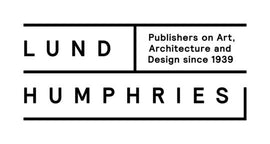BOOK TALKS March 2022: The Art of Activism and the Activism of Art by Gregory Sholette

PAD/D (Political Art Documentation/Distribution) anti-gentrification stencil by Michal Anderson, 1984. GSholette archives.
Whither art activism? History and prospects with Kim Charnley and Gregory Sholette
Sponsored by Beinecke Library, the Postwar Culture Working Group, and the Whitney Humanities Center.
Zoom webinar registration: https://bit.ly/3BVG4WE
Art activism has always pulled in two opposing directions, as a 'Trojan Horse' bringing politics into the artworld, as Lucy Lippard put it in the 1980s, and equally focused on developing democratic energies by embedding art in movement politics. The configuration of these impulses has radically shifted over the last three decades.
For most of the 1990s, art activism existed on the fringes of an expanding art world, where spectacular forms of ironic neo-pop art dominated visibility. In the early 2000s, the political model of art activism asserted itself in dialogue with the alterglobalisation movement, as radical imaginative resistance to the homogenizing forces of capitalist mass spectacle in an autonomist mode. The art world began to take notice.
In the crisis-ridden 2010s, political aesthetics was turned-up full-volume with a vibrant wave of artistic activism on the Left including projects of museum staff unionization, decolonizing the art world, Black Lives Matter and other campaigns that are still ongoing. For at least a decade now, insurgent politics has taken on characteristics of what art activists called ‘tactical media’. Age-old techniques of protest located in street demonstration are complemented by social media-based organising and meme-like dissemination of tactics for countering militarised policing.
What does strange story arc of art activism tell us about the conditions and prospects of progressive politics now? This is a moment when the far-Right is weaponizing social media using tactics straight out of the progressive playbook including deconstructing mainstream media, decrying BLM as racist and #METOO as sexist, and demanding a right to free speech even if this involves anti-Islamic and anti-Semitic content. It is also a moment when art collectives, long the signature strategy of art activism, have gone mainstream. Art collectives receive art prizes and the Indonesian group ruangrupa is curating the next documenta exhibition. Finally, the generally left liberal politics of the art institution, that art activists once challenged, is under attack from a hard right turn in electoral politics across the globe.
If only one thing is clear, it is that the condition of politics in the present is unclear, complicated and yet also spectacularized, just as everything is within global capitalism. This conversation reflects on what kinds of perspectives might be provided by the history and practice of art activism to shed light on this perplexing situation and the role of emancipatory art within it.
TALK Series: Gregory Sholette for the Reykjavík Art Museum
The event takes place in English. Registration HERE
Since the global financial crash of 2008, and following the sharp rightward swing of the US and UK 2016 elections, artists have become increasingly engaged in a wide range of cultural activism targeting capitalism, authoritarianism, colonial legacies, gentrification, but also in opposition to their own exploitation. Absorbing and reflecting political forms of dissent into their art practice, contemporary art activists inaugurate a broader cultural paradigm shift signaling our collective entry into the unpresent, an uncanny juncture in which distinctions between aesthetics and protest, autonomy and engagement, have been inverted if not erased. Sholette approaches his subject from the dual perspective of scholar and insider, describing and theorizing a new wave of activist art emerging not only within community-based protest groups, as it has for decades, but also amongst professionally trained art practitioners, many of whom, by choice or by circumstance, refuse to respect the conventional borders separating painting from protest, or art from utility.
Art for the Future Closing Artist Roundtable & Book Release Party
Join us for a lively closing roundtable discussion and celebration with Artists Call participants and key organizers, and exhibition co-curators, including Lucy Lippard, Doug Ashford, Daniel Flores y Ascencio, Jerry Kearns, Dona Ann McAdams, Sabra Moore, Gregory Sholette, Josely Carvalho, and others. And celebrate the release of the bilingual English-Spanish exhibition catalogue, co-published by Inventory Press, that features essays by artists and the exhibition curators as well as interviews with Artists Call organizers.
This program is supported in part by the Tufts University Toupin-Bolwell Fund, Tufts University AS&E Diversity Fund, and the Institute for Studies on Latin American Art (ISLAA).
This program will be presented in English with Spanish interpretation.
More info HERE.
Find out more about Gregory Sholette's book HERE.


